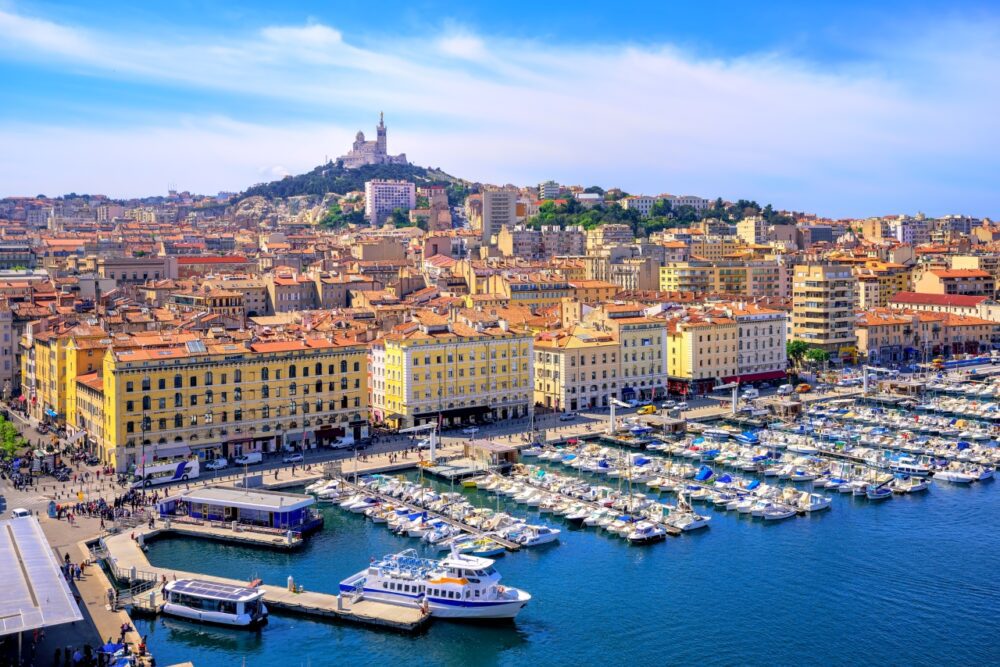
Is Marseille worth visiting? Without a doubt! When I first explored Marseille, France’s oldest city, I was captivated by its raw energy and stunning coastal scenery. From the bustling Vieux-Port (Old Port) to the vibrant streets of Le Panier, Marseille feels like a city that thrives on contrasts—historic yet modern, gritty yet beautiful, and always full of life.
Located on the Mediterranean coast, Marseille is the second-largest city in France and a melting pot of cultures. Known for its rich maritime history, delicious bouillabaisse, and iconic landmarks like the Basilique Notre-Dame de la Garde, Marseille offers a uniquely authentic French experience. Add in its proximity to the stunning Calanques National Park and charming fishing villages like Cassis, and you’ve got a destination that’s as dynamic as it is scenic. But is Marseille worth visiting for you?
In this blog post, we’ll explore the top 10 reasons why Marseille should be on your travel list, from its historic landmarks to its vibrant cultural scene. Plus, we’ll share travel tips to help you make the most of your visit. Keep reading to see why Marseille is a city you won’t want to miss.
Table of Contents
Pros – Reasons You Should Visit Marseille
1. A Stunning Mediterranean Setting with Beautiful Coastal Views
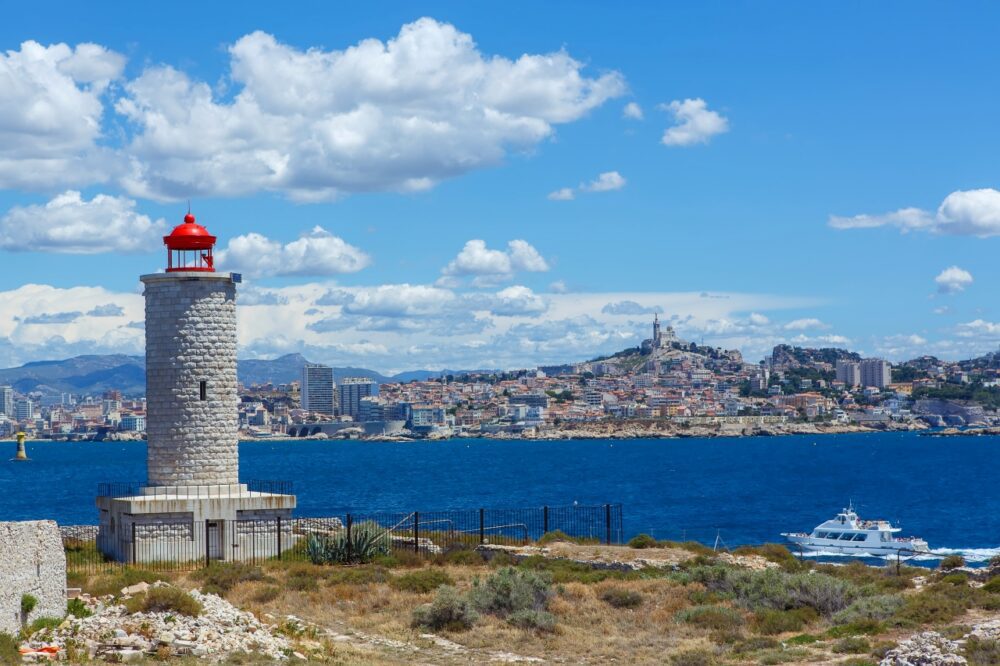
Marseille’s location on the Mediterranean gives it some of the most breathtaking coastal views in France. The city’s rugged coastline, turquoise waters, and picturesque harbors make it a paradise for anyone who loves the sea. Whether you’re admiring the view from a hilltop cathedral or enjoying a seafood meal by the Old Port, the city’s setting is simply spectacular.
I took a walk along the Corniche Kennedy, a scenic coastal road with panoramic views of the Mediterranean. Watching the waves crash against the rocky cliffs while the sun set over the sea was one of the most peaceful moments of my trip. Unlike the crowded beaches of the French Riviera, Marseille’s coastline has a wild, untamed beauty that feels completely unique.
2. The Old Port is the Heart of the City
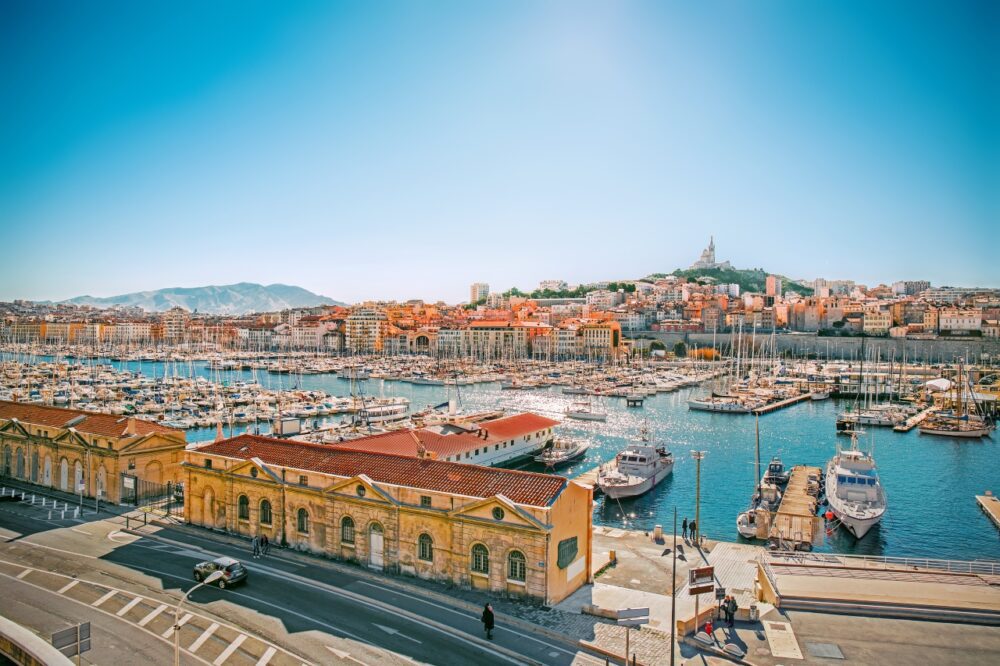
The Old Port, or Vieux-Port, is the historic center of Marseille and one of its most lively and picturesque spots. Lined with seafood restaurants, cafés, and markets, it’s the perfect place to soak up the city’s maritime atmosphere. Fishing boats and luxury yachts share the harbor, and the energy of the waterfront makes it an ideal starting point for exploring the city.
I arrived early in the morning to see the daily fish market, where local fishermen sell their fresh catch straight off the boat. The smell of the sea, the chatter of vendors, and the sight of glistening fish on display made it a fascinating cultural experience. Later in the evening, I returned to enjoy a pastis, the traditional anise-flavored drink of Marseille, while watching the boats bob in the harbor under the glow of the city lights.
3. A Rich and Diverse Cultural Identity
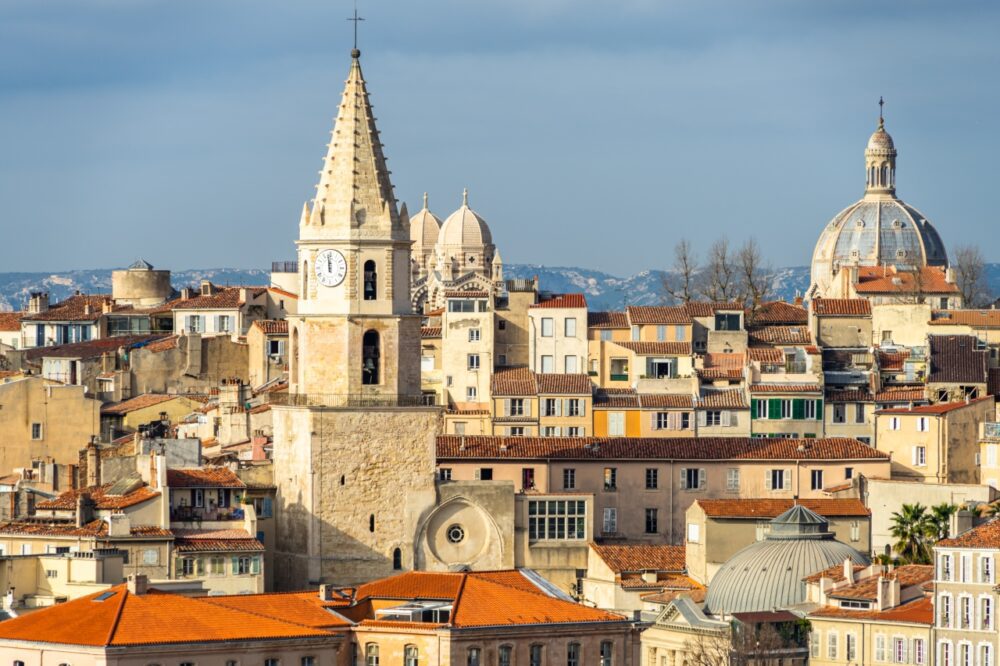
Marseille has long been a melting pot of cultures, shaped by centuries of immigration from North Africa, Italy, and beyond. This diversity is reflected in the city’s food, architecture, music, and overall atmosphere, making it one of the most unique and multicultural cities in France.
I walked through Le Panier, the city’s oldest neighborhood, where the narrow streets are lined with colorful buildings, street art, and North African markets selling spices and textiles. Later, I visited the Noailles district, where the aroma of freshly baked flatbreads and Moroccan tagines filled the air. Marseille’s cultural mix gives the city a vibrant, dynamic energy that sets it apart from other destinations in France.
4. Incredible Seafood and Unique Local Cuisine
Marseille is a dream destination for food lovers, especially those who enjoy seafood. The city’s most famous dish is bouillabaisse, a rich fish stew made with local Mediterranean seafood and flavored with saffron, garlic, and herbs. There’s also a strong North African influence in Marseille’s cuisine, with delicious dishes like couscous and spicy merguez sausages found throughout the city.
I had bouillabaisse at a small family-run restaurant near the Old Port, and it was easily one of the best meals I’ve ever had. The broth was intensely flavorful, and the fresh fish practically melted in my mouth. I also tried panisse, a crispy chickpea flour snack that’s a local specialty, and it was the perfect salty, crunchy treat to enjoy with a glass of rosé. If you love food, Marseille offers a rich and diverse culinary experience.
5. The Calanques National Park is a Natural Paradise
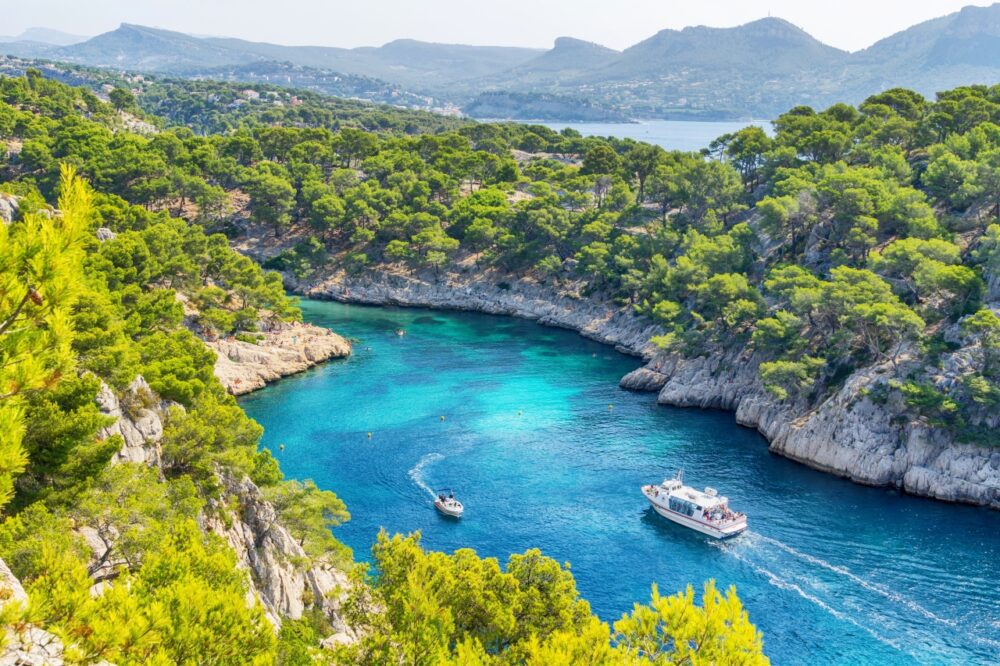
Just outside Marseille lies the stunning Calanques National Park, a series of dramatic limestone cliffs, turquoise coves, and scenic hiking trails. Whether you want to go swimming, kayaking, or simply take in the breathtaking views, the Calanques offer a perfect escape into nature.
I took a boat tour from the Old Port to explore the Calanques, and the sight of the towering white cliffs against the deep blue sea was unforgettable. Later, I hiked from Cassis to the famous Calanque d’En-Vau, a secluded beach with crystal-clear water surrounded by towering rock formations. It felt like discovering a secret paradise, and it was one of the highlights of my trip to Marseille.
6. The Basilica of Notre-Dame de la Garde Offers the Best View of the City
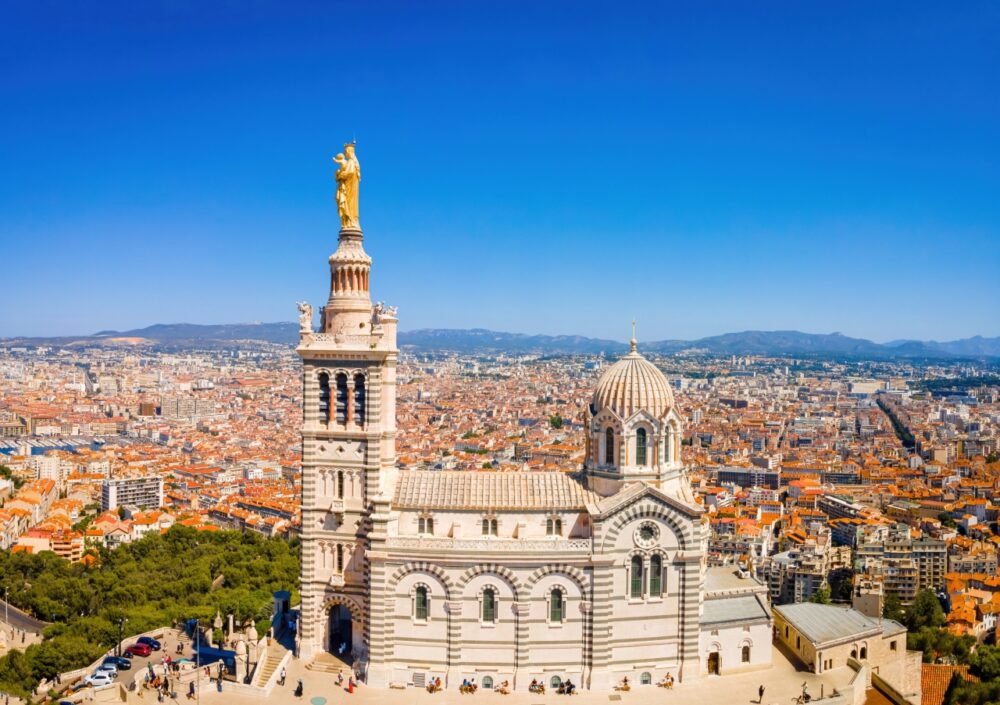
Perched on a hill overlooking Marseille, the Basilica of Notre-Dame de la Garde is the city’s most famous landmark. This stunning church, known as “La Bonne Mère” (the Good Mother), is both a place of worship and a symbol of Marseille’s deep-rooted traditions.
I climbed to the top just before sunset, and the 360-degree view of the city, the Mediterranean, and the surrounding mountains was breathtaking. Inside, the church’s ornate mosaics and maritime-themed decorations added to its unique charm. Whether you’re religious or not, a visit to Notre-Dame de la Garde is an absolute must for the view alone.
7. A More Authentic and Less Touristy Alternative to the French Riviera
While places like Nice, Cannes, and Saint-Tropez are known for their glamour, Marseille offers a more authentic and down-to-earth experience. It’s a working-class city with real energy, where locals go about their daily lives rather than catering exclusively to tourists.
I loved how Marseille felt like a real city rather than a resort town. The markets were full of locals shopping for fresh produce, and the restaurants were lively with groups of friends sharing meals. It has all the beauty of the Mediterranean without the overly polished, tourist-driven feel of the Côte d’Azur.
8. The City Has a Thriving Street Art Scene
Marseille is one of the best cities in France for street art, with entire neighborhoods covered in colorful murals and graffiti. The Cours Julien district, in particular, is known for its vibrant street art, trendy cafés, and alternative vibe.
I spent an afternoon wandering through Cours Julien, admiring the massive murals that transformed ordinary buildings into works of art. Some pieces were political, others playful, but all added to the creative and rebellious spirit of the city. If you enjoy street art and urban culture, Marseille is full of hidden artistic gems waiting to be discovered.
9. A Passion for Football That Brings the City Together
Football is more than just a sport in Marseille—it’s a way of life. Olympique de Marseille, the city’s beloved football club, has some of the most passionate fans in France, and attending a match at the Stade Vélodrome is an unforgettable experience.
Even if you don’t go to a game, you’ll feel the city’s love for football everywhere. I saw murals dedicated to the team, shop windows displaying OM scarves, and people in bars intensely discussing the latest match. Marseille’s football culture is part of its identity, and the energy around the sport is infectious.
10. A Laid-Back Mediterranean Lifestyle
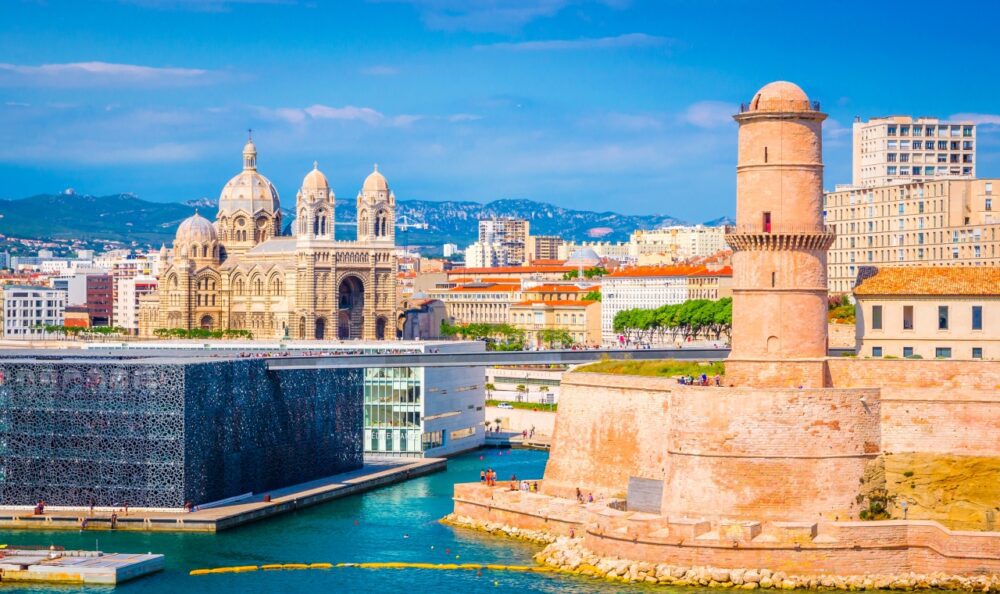
One of the best things about Marseille is its relaxed, sun-soaked Mediterranean lifestyle. The warm weather, slow pace of life, and focus on enjoying good food, good company, and the sea make it a wonderful place to unwind.
I spent my last evening sitting at a waterfront café, sipping a glass of rosé and watching the boats in the harbor. The sun was setting, the air was warm, and everything felt effortlessly peaceful. Marseille has a way of making you slow down and appreciate the simple joys of life, which is something I’ll always remember.
Cons – Things You Should Consider When Visiting Marseille
1. The City Has a Reputation for Being Rough in Certain Areas
Marseille has a bit of a rough-around-the-edges reputation compared to other French cities, and while it is full of charm, some areas can feel a little rundown or unsafe, especially at night. Like any large port city, it has its share of crime and social issues, and some neighborhoods are best avoided after dark.
I noticed that around the main train station, Saint-Charles, and parts of La Canebière, there was a noticeable amount of loitering and a slightly uneasy atmosphere, particularly in the evening. While I never felt directly threatened, I was more cautious about keeping an eye on my belongings and sticking to well-lit areas. Marseille is generally safe for tourists, but like in any big city, being aware of your surroundings and avoiding certain districts at night is a good idea.
2. Public Transport Can Be Unreliable and Confusing
While Marseille has buses, trams, and a metro system, public transport is not as efficient or user-friendly as in other major French cities like Paris or Lyon. Some routes have long wait times, services don’t always run late into the night, and occasional strikes can make getting around a challenge.
I found that figuring out the bus schedules was tricky, as they didn’t always run on time, and some stops weren’t clearly marked. On one occasion, I waited over 30 minutes for a bus that was supposed to come every 15 minutes. Taxis and ride-sharing apps like Uber are available, but they can be expensive. If you’re staying near the Old Port or the main attractions, walking is often the best option, but for longer journeys, transport delays can be frustrating.
3. The City Can Be Quite Noisy and Chaotic
Marseille has a vibrant, lively atmosphere, but this also means that it can be noisy, especially in busy areas like the Old Port and the city center. The sounds of scooters zipping through the streets, markets buzzing with activity, and people socializing late into the night give the city a constant energy, but for visitors looking for peace and quiet, it can sometimes feel overwhelming.
One evening, I stayed in an Airbnb near the Old Port and was woken up multiple times by loud motorbikes, street chatter, and late-night revelers. While this adds to the city’s dynamic character, it’s something to consider when choosing accommodation. If you’re a light sleeper, staying in a quieter area like near the Corniche or the outskirts of the city might be a better option.
4. Some Attractions and Streets Can Feel a Bit Neglected
While Marseille has some stunning landmarks, there are parts of the city that feel a little neglected, with graffiti, litter, or buildings in need of restoration. Unlike polished tourist destinations such as Nice or Bordeaux, Marseille has a more lived-in, gritty feel that not everyone may appreciate.
Walking through some backstreets in the Noailles district, I noticed a fair amount of garbage piled up, and some areas felt like they hadn’t been maintained in a while. Even around the Old Port, certain corners felt slightly worn down. While this rawness is part of Marseille’s charm, visitors expecting a pristine, postcard-perfect city might be surprised by its more unpolished side.
5. The Summer Heat Can Be Intense and Overwhelming
Marseille enjoys a Mediterranean climate, which means long, hot summers with temperatures often exceeding 30°C (86°F). While the sea breeze helps, the heat can feel intense, especially when walking around the city’s hilly streets or waiting for public transport in areas with little shade.
I visited in late July, and the combination of strong sun, high temperatures, and occasional humidity made sightseeing during midday almost unbearable. Climbing up to Notre-Dame de la Garde in the afternoon heat was a challenge, and even just walking through the city left me feeling drained. If you’re visiting in the summer, staying hydrated, wearing sunscreen, and planning activities for the cooler morning or evening hours is essential.
When to Visit Marseille
The best times to visit Marseille are spring (April to June) and early autumn (September to October), when temperatures are comfortable, the Mediterranean sun is shining, and the crowds are fewer than during the peak summer months. These shoulder seasons are ideal for exploring Marseille’s coastal scenery, historic sites, and nearby Calanques without the intense heat or busy summer crowds. Summer (July and August) is lively, with beach-perfect weather, festivals, and bustling waterfronts, though it can get very hot and crowded. Winters are mild but quiet, making it a good time for a peaceful, slower-paced trip and exploring Marseille’s cosy bistros and museums.
How to Get to Marseille
Marseille Provence Airport (MRS), located about 25 kilometres northwest of the city, is the main airport, offering flights from Air France, Lufthansa, Ryanair, and many other European carriers. From the airport, you can take a shuttle bus to Marseille’s Saint-Charles train station in about 25 minutes. The city is also well connected by high-speed TGV trains from Paris, Lyon, and other French cities, with trains arriving directly into Saint-Charles station. For those coming from Corsica, ferries run regularly between Marseille’s Old Port and various Corsican cities, making it an excellent base for island connections.
Where to Stay in Marseille
Marseille offers a variety of neighbourhoods, each with a unique atmosphere and range of accommodation options:
- Luxury: Le Panier – This historic district near the Old Port offers character-filled, upscale options like InterContinental Marseille – Hotel Dieu and Sofitel Marseille Vieux Port, both with excellent views of the port and easy access to cultural sites.
- Mid-range: Cours Julien – Known for its artsy vibe and colourful street art, Cours Julien is a lively district with a mix of restaurants and bars. Mama Shelter Marseille and New Hotel Le Quai offer comfortable, modern stays at reasonable prices in a trendy part of town.
- Budget: La Canebière – Close to Saint-Charles station and the Old Port, La Canebière has several affordable hotels and hostels like Vertigo Vieux-Port and Hotel de la Renaissance, making it a practical choice for budget-conscious travellers.
Getting Around Marseille
Marseille has an efficient public transport system, with two Metro lines, trams, and buses managed by RTM. A single ticket or day pass gives you access to all forms of transport, and the Metro is particularly useful for reaching popular sights like the Old Port and Notre-Dame de la Garde. The Le Vélo bike-sharing scheme is a convenient way to explore the city’s coastal paths or the vibrant streets of Le Panier and Cours Julien. For a unique perspective, consider taking a ferry from the Old Port to nearby islands like Frioul or Château d’If, which offer stunning views of Marseille from the water.
How Long to Spend in Marseille
Three days is ideal for seeing Marseille’s highlights, including Notre-Dame de la Garde, the Old Port, Le Panier, and perhaps a short boat trip to Château d’If or the Calanques. With a few extra days, you can explore the Calanques more thoroughly, spend time on the beaches, or take a day trip to nearby towns like Cassis or Aix-en-Provence for a taste of the Provençal countryside. Marseille’s blend of Mediterranean culture, rich history, and coastal beauty makes it a rewarding destination whether you stay for a weekend or a full week.
Conclusion
So, is Marseille worth visiting? Absolutely! With its stunning Mediterranean setting, historic charm, and lively cultural scene, Marseille is a city that has something for everyone. Whether you’re exploring the Old Port, hiking in the Calanques, or indulging in fresh seafood, Marseille promises unforgettable experiences. While it’s a bit grittier than cities like Paris or Nice, its authentic character and vibrant energy more than make up for it. If you’re ready to experience a different side of France, start planning your trip to Marseille today!
